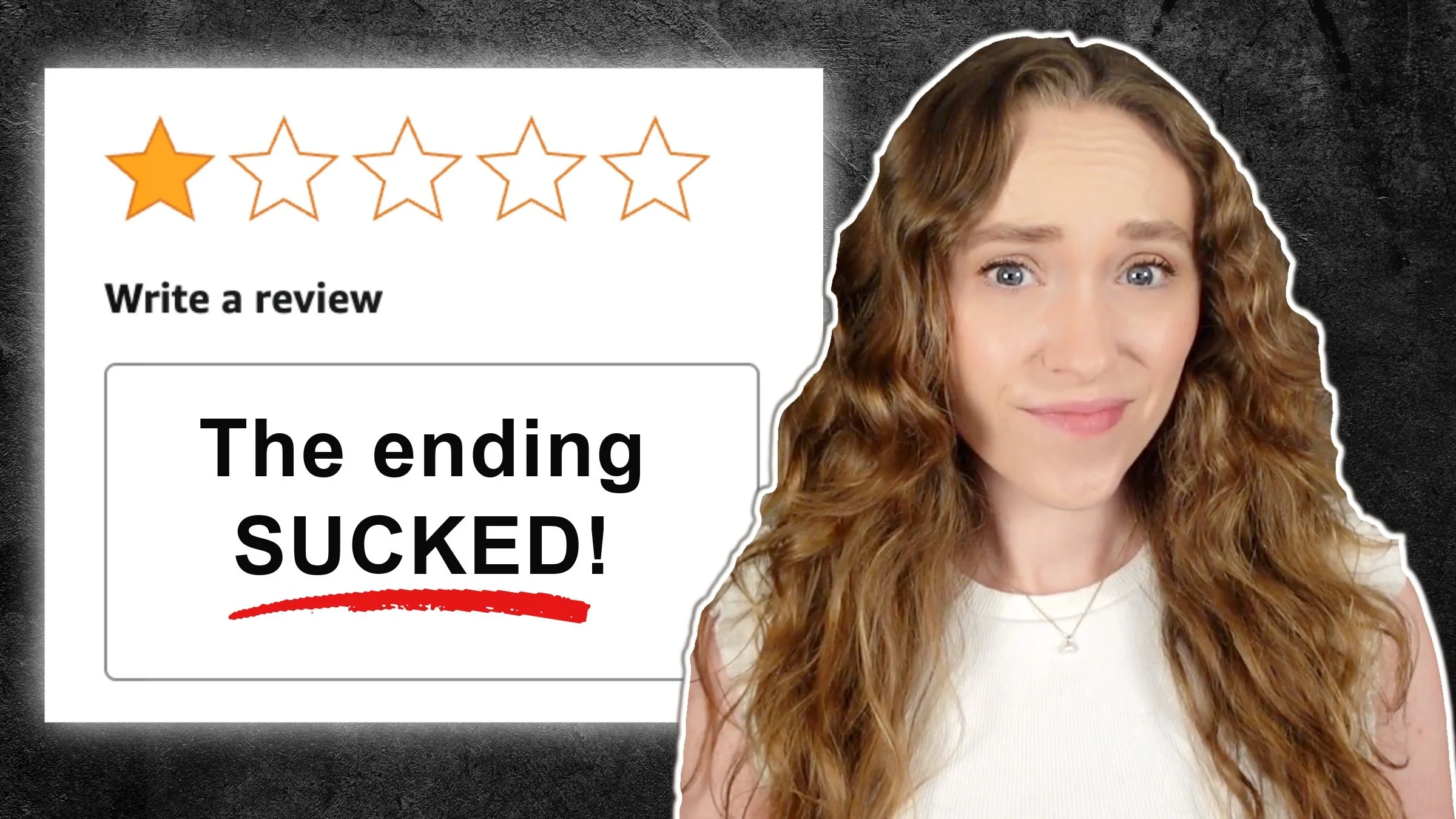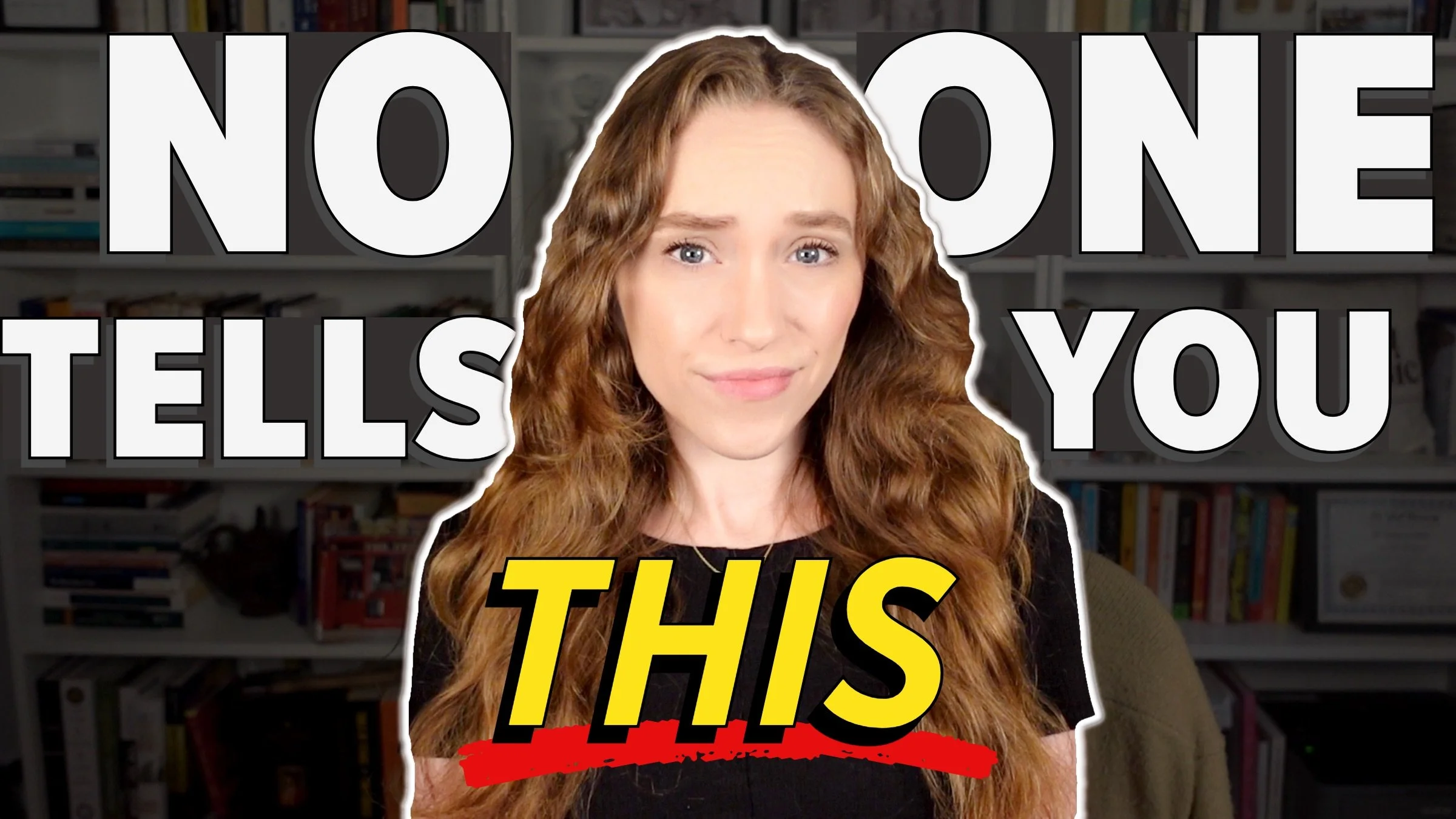The ONLY Way to Overcome a Creative Block
HIT PLAY OR READ THE POST BELOW:
If you're slogging through your draft right now, hating every word, or revising the same scene for the tenth time and just making it worse, or staring at feedback you got from an editor or reader and wanting to scream because you don't know how to implement it — listen up.
If you’re experiencing a creative block, there's a guaranteed way to get overcome this roadblock every single time, and you can do it right here, right now. It's not some special prompt or exercise. It's not a productivity hack. In fact, it doesn't even involve writing at all.
It's the number one recommendation I give when writers I work with are feeling stuck or overwhelmed and need a breakthrough: simply step away from your draft.
Take a break — on purpose.
I'm not saying put your manuscript in a drawer never to see the light of day again and doom scroll on social media endlessly. I'm talking about taking an intentional break that restores your creative energy.
Most writers don't use this trick to its full capacity, so today I'm going to reveal the psychology behind why taking a break is so effective to your creative process, how to ensure your break isn't just a form of procrastination or a waste of your time, and practical tips to ensure you return to your manuscript restored and clear-headed.
First, we need to understand the brain science behind what's really going on when your writing practice becomes unproductive. There's real psychological proof behind why this technique works every single time.
The problem is you've been too close to the story for too long. You're so deep in the weeds, you can't see the full picture. You're suffering from cognitive overload, and your creative brain is totally burnt out. It's like when you repeat a word so many times it stops sounding like a word — that's what's happening with your story. It's a jumbled mess of sentences that doesn't make sense anymore.
This is when just powering through becomes counterproductive. If you tell yourself, "Just one more writing session — I have to work harder," you'll probably end up short-circuiting entirely. The answers you're desperately seeking tend to strike you when you step away from your desk and the manuscript. They come when you're walking the dog, or taking a shower, or doing nothing at all.
Fun fact: this exact issue happened to me when I was coming up with an idea for this blog. I was trying to brute force it, staring at my screen for two hours, and ended up with three half-baked ideas that I wasn't really excited about. Then, as I was walking to my Pilates class, the idea for this article struck me.
So why does this happen? Here's the proven science behind why taking a break from your story helps it click into place.
When you step away from your story strategically, you actually activate a different part of your brain. Instead of conscious effort — the type of effort when you're writing, revising, staring at your screen during a writing session — your brain shifts into what psychologists call the default mode network. This is your brain's behind-the-scenes creative engine. It's your secret superpower as a writer. It's the group of brain regions that are more active during a resting state — like when you're daydreaming — rather than the parts of your brain that are active during an external task like writing.
It turns out writing isn't just about sitting at your desk and putting in the hours. It's also about incubation — giving your subconscious the breathing room it needs to solve issues for you. And scientific studies have proven that this incubation period enhances our ability to think creatively and problem-solve.
But not just any kind of break will work — and this is where writers can go wrong.
Three tips for how to spend an intentional, creatively restorative break:
Go analog as much as possible. It’s impossible to go fully content-free or screen-free during your break, but try to give your brain as much empty space as you possibly can. Take long walks, practice yoga or meditation, or simply cook dinner without having a podcast or a TV show on in the background.
Explore other creative mediums. If you’re a musician, work on a song. If you like to draw, work on a piece of art. This keeps your creative energy flowing without focusing on your story.
Rest as much as possible. Grinding away at your story has not only impacted you mentally, but likely also physically — especially if you tend to write at night. Your body and brain need time to recharge to come back to the story restored.
How long should your break be? Twenty-four hours isn’t going to give you enough time and space away from your story. So make sure it’s long enough. I advise taking at least a few days — more often, at least a week or two, especially if the issues you’re facing are more developmental in scope, like after you get feedback from an editor. But it’s not unheard of for authors to take a month or two away from their story, and that’s totally valid if that’s what you need.
I get it, though, it’s hard to spend so much time away from your story, especially if you have an internal deadline for completing a draft or for querying that you’re trying to stick to. You might start to feel guilty for not working on it. Your fingers might even feel itchy to go to the file whenever you’re on your computer — like our fingers automatically open up social media apps when we open our phone.
If you’re prone to continuing to open up the file anytime you sit down at your computer, I have two tips:
Get an external flash drive and physically move your manuscript file onto it. Then put that flash drive in a drawer or a closet somewhere. Keep it close by — but somewhere that you have to make an effort to go get it. Now that you’ve created more space and added an extra step you need to take to access your manuscript, you’re less likely to want to mess with it.
If you’re too nervous to move your manuscript onto an external flash drive, is to put it behind a folder that you title “Do not open until [date].” Now, anytime you’re tempted to open it, you’re going to have to check in with yourself and see that folder standing in your way.
Once you’ve physically put the manuscript aside in some way, set a calendar reminder for the day you want to check back in with your story.
And then, when that day finally arrives, here’s what I guarantee will happen:
When you open up your manuscript draft, you’ll see it differently. You’ll be more objective. You’ll notice things you’ve never noticed before. And those problems that were stumping you will suddenly feel fixable. You’ll be able to see a path forward — and know exactly what you need to do to take your story to the next level. At the very minimum, you’ll know what questions you need to ask to get there.
How do I know this works? I’ve seen it time and time again with my editing clients.
Because I’m a developmental editor, my feedback to them is often intense in scope and could require major revisions to the story. So I always tell my clients to let the feedback sit and marinate for at least a week.
Just last week, I had advised one of my clients to revise the POV of her novel. She wrote back to me within an hour of receiving my feedback — she was overwhelmed, concerned about her ability to execute the revisions, and considering scrapping the story entirely. I told her not to make any decisions just yet, but to put the manuscript and the feedback away for a week or so and then return to it and see how she felt.
Like magic, a week later, she wrote back to me saying the POV issue made perfect sense — and she knew exactly what she needed to do in the story and why the story would be better for the change. The revisions no longer felt daunting. She was actually excited to dive back in.
That’s the beauty of what a simple break can do for you.
Taking a break is not giving up.
It’s not procrastination. It’s not laziness. It’s actually one of the most productive things you can do as a writer. In fact, I would argue that it’s a necessary part of your writing practice — because by taking a break, you’re acknowledging that not all the work of writing a novel happens in the manuscript itself.
Some of the biggest creative breakthroughs happen when you step away from your desk and from the manuscript — and give your brain room to breathe.
So if you’re feeling stuck right now, rest assured: your story isn’t broken. You just need to take a break.






